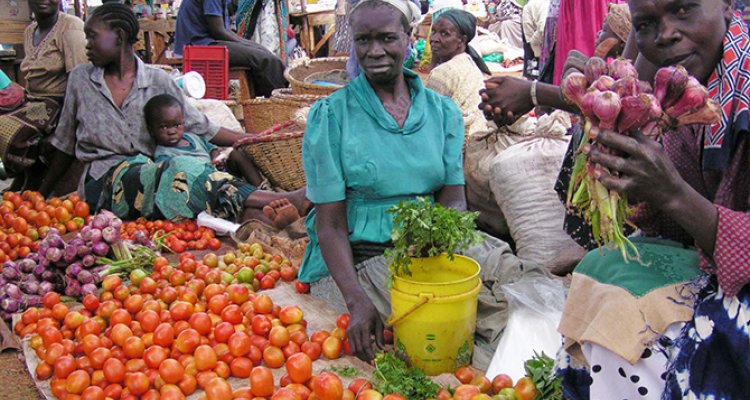
News
Food available to African farmers increases with market access and off-farm opportunities
‘This new study suggests that we need to ensure that farmers have access to markets for their produce and also opportunities to diversify their income by working outside the farm, both as daily wage labour and in other sectors, to target poverty and improve food security’, Ken Giller, professor Plant Production Systems at Wageningen University, says. ‘Much of the focus of agricultural research in relation to rural development in Africa is currently focused on increasing crop yields, while important, it is simply not enough on its own.’ The findings were recently published by the Proceedings of the National Academy of Sciences (PNAS) in a first paper using big data from small farms in sub-Saharan Africa.
Big data from small farms brings new insights
The availability of food for the farm households was found to be strongly influenced by the degree of market access and off-farm opportunities, after analysis of drivers of variations in food availability. From the unique dataset researchers were also able to predict household food availability for 72% of the households based on only three variables - household size, the land area of their farm and the number of livestock they owned. ‘This is an achievement across this huge content with all its diversity of cultures and environments - from livestock herders to small farms in the mountainous highlands', says Giller.
Unique dataset
Every year thousands of households in sub-Saharan Africa are surveyed - every project does a baseline study of several hundred households. Ken Giller: ‘We saw this as an opportunity - what if we could bring together all of these surveys conducted across the continent? We ended up with a dataset of 13,000 households across 93 locations in 17 countries of sub-Saharan Africa, and it is this wide geographical coverage that represents the strength of this research.’
This study builds on earlier work Wageningen University did in the N2Africa project over the past couple of years.